11. Sanzi Bu Yi Tea
[Composition] 10g of Ligustrum lucidum, 10g of Radix Pseudostellariae, 15g of Lycium barbarum, 10g of Chicken's blood vine.
[Preparation] Remove impurities from the above ingredients, crush them, and place them in a cup. Add an appropriate amount of boiling water and steep for half an hour before drinking.
[Efficacy] Nourishes the liver and kidneys, replenishes deficiencies and nourishes the blood.
[Applicable Range] Suitable for abdominal distension and diarrhea or weakness caused by severe illness.
[Analysis] Ligustrum lucidum has a cool nature, a sweet and bitter taste, and belongs to the liver and kidney meridians. It has the effects of calming the liver and improving eyesight, clearing heat and detoxifying, and strengthening the kidneys and securing essence. It has significant effects on symptoms such as dizziness and premature greying of hair caused by liver and kidney yin deficiency. It also has a relieving effect on vision decline and blurriness caused by liver disease. Lycium barbarum has a neutral nature and a sweet taste. It belongs to the liver, bone, and lung meridians. It has the effects of nourishing the liver and kidneys, improving eyesight, and nourishing the lungs. It is used to treat symptoms such as weakness in the limbs and dizziness caused by liver and kidney yin deficiency. Radix Pseudostellariae, also known as Prince Ginseng, has a neutral nature and a sweet and bitter taste. It belongs to the spleen and lung meridians and has the effects of generating fluids and replenishing qi. It is mainly used for poor appetite and weakness in the limbs caused by weak spleen and stomach.
[Dosage] Drink as a daily substitute for tea.
[Precautions] Do not drink during a cold.
12. Four Gentlemen Tea
[Composition] 10g of Atractylodes macrocephala, 10g of Poria cocos, 3g of Ginseng, 3g of Licorice.
[Preparation] Clean the above materials, then put the ginseng in a pot and add an appropriate amount of water to cook and extract the medicinal juice. Grind the remaining ingredients into powder or small pieces and put them in a tea cup. Add boiling water and steep for 20 minutes. Then add the ginseng juice and drink.
[Efficacy] Invigorates the spleen and stomach, replenishes deficiencies and nourishes qi.
[Applicable Range] Suitable for weak spleen and stomach, and ischemia.
[Analysis] Atractylodes macrocephala has a warm nature, a bitter taste, and belongs to the spleen and stomach meridians. It has the effects of invigorating the spleen, drying dampness, and nourishing the fetus. It is mainly used for weak spleen and stomach, spontaneous sweating, and restless fetus. Poria cocos has a neutral nature and a sweet taste. It belongs to the heart, spleen, and kidney meridians. It has the effects of invigorating the spleen, calming the mind, and promoting diuresis. It has significant effects on symptoms such as poor urination, spleen deficiency, palpitations, and insomnia. Ginseng can replenish the original qi, calm the mind, benefit the intelligence, and tonify the lungs and spleen. It has a warm nature and a bitter taste, and belongs to the spleen and lung meridians. It is mainly used for symptoms such as weak qi and blood, insomnia, and dreaminess.
[Dosage] Take one dose daily as a substitute for tea.
[Precautions] Use with caution for those with dampness and yin deficiency.
13. Four Substances Nourishing Blood Tea
[Composition] 10g of Angelica sinensis, 10g of Paeonia lactiflora, 12g of Rehmannia glutinosa, 5g of Ligusticum chuanxiong.
[Preparation] Remove impurities from the above ingredients, crush them, and place them in a cup. Add hot water and steep for 20 minutes before drinking.
[Efficacy] Nourishes yin and replenishes deficiencies, nourishes qi and nourishes blood, calms the mind and nourishes the brain.
[Applicable Range] Suitable for cardiovascular disease and cancer patients to take.
[Analysis] Angelica sinensis has a warm nature and a sweet taste. It belongs to the liver, heart, and spleen meridians. It has the effects of promoting blood circulation and nourishing blood. It is used to treat blood deficiency, irregular menstruation, and has a significant relieving effect on constipation. Rehmannia glutinosa can replenish essence and nourish marrow. It has a nourishing effect on pale complexion caused by blood deficiency. It can also relieve symptoms such as dizziness, blurred vision, and premature greying of hair caused by deficiency of menstrual blood. Paeonia lactiflora has a similar effect to Rehmannia glutinosa and can also be used to treat liver disease. It has a significant therapeutic effect on symptoms such as abdominal distension and pain, dizziness, and blurred vision caused by hepatitis.
[Dosage] Drink as a daily substitute for tea.
[Precautions] Stop using during a cold.
14. Qi-Enhancing and Yuan-Protecting Tea
[Composition] 10g of Astragalus membranaceus, 10g of Codonopsis pilosula, 5g of Licorice, 3g of Ginger, 2g of Cinnamon.
[Preparation] After cleaning Codonopsis pilosula, put it in a pot with an appropriate amount of water and cook to extract the medicinal juice. Crush the remaining ingredients into powder, put them in a cup, add boiling water, steep for 20 minutes, remove the residue, and then add the Codonopsis pilosula juice. Drink.
[Efficacy] Tonifies qi and nourishes blood, dispels cold and warms the middle.
[Applicable Range] Suitable for yang deficiency, weak spleen and stomach, etc.
[Analysis] Astragalus membranaceus has a warm nature and a sweet taste. It belongs to the spleen and lung meridians. It has the effects of raising yang and replenishing qi, promoting diuresis and reducing swelling, and detoxifying. It is mainly used for spleen and stomach qi deficiency, spontaneous sweating, poor circulation of qi and blood, and difficulty urinating. Codonopsis pilosula has a neutral nature and a sweet taste. It belongs to the lung and spleen meridians. It has the effects of generating fluids and nourishing blood. It is mainly used for symptoms such as deficiency of the middle qi and yellow complexion.
[Dosage] Drink as a daily substitute for tea.
[Precautions] Stop using during a cold.
15. Erzi Kidney-Enhancing Tea
[Composition] 5g of Schisandra chinensis, 6g of Lycium barbarum, 5g of White sugar.
[Preparation] Crush Schisandra chinensis and put it in a cup. Add Lycium barbarum and an appropriate amount of boiling water. Steep for 20 minutes, then add white sugar and mix well before drinking.
[Efficacy] Tonifies qi and nourishes blood, strengthens the kidneys and secures essence.
[Applicable Range] Suitable for weak constitution, liver and kidney yin deficiency, etc.
[Analysis] Schisandra chinensis has a warm nature and a sour taste. It belongs to the lung, kidney, and heart meridians. After taking it, it can generate fluids, quench thirst, calm the mind, nourish the heart, and astringe essence to stop diarrhea. It is used for cough, asthma, kidney deficiency, spontaneous sweating, nocturnal emission, slippery essence, heart palpitations, and insomnia. It also has a lowering effect on elevated liver enzymes caused by chronic hepatitis. Lycium barbarum has the effects of nourishing the liver and kidneys, improving eyesight, and moistening the lungs. It has significant curative effects on symptoms such as dizziness, blurred vision, weakness in the limbs, and dry cough caused by liver and kidney yin deficiency.
[Dosage] Drink as a daily substitute for tea.
[Precautions] Diabetic patients should not add sugar.
16. Erwei Yang-Enhancing Tea
[Composition] 15g of Morinda officinalis, 10g of Achyranthes bidentata.
[Preparation] After grinding the above ingredients, put them in a tea cup, add an appropriate amount of boiling water, cover and steep for 20 minutes, then drink.
[Efficacy] Nourishes yin and enhances yang, strengthens the body.
[Applicable Range] Suitable for kidney deficiency, irregular menstruation, etc.
[Analysis] Morinda officinalis has a slightly warm nature, a sweet and bitter taste, and belongs to the kidney meridian. It has the effects of tonifying the kidneys and enhancing yang, strengthening the body, dispelling wind, and eliminating dampness. It is used for frequent urination, urgency, impotence, infertility, irregular menstruation, and restless fetus. It also has a regulating effect on insufficient fetal essence. Achyranthes bidentata has a neutral nature, a bitter and sour taste, and belongs to the liver and kidney meridians. It has the effects of tonifying the liver and kidneys, promoting blood circulation, eliminating blood stasis, diuresis, and relieving stranguria. It can be used to treat irregular menstruation, amenorrhea, dysmenorrhea, and various blood disorders.
[Dosage] Take one dose daily as a substitute for tea.
[Precautions] Avoid using for those with excessive liver fire, pregnant women, and those with irregular menstruation.
17. Du Zhong Kidney-Replenishing Tea
[Composition] 15g of Eucommia ulmoides, 5g of Schisandra chinensis.
[Preparation] Cut Eucommia ulmoides into small pieces and put them in a cup. Grind Schisandra chinensis into powder and also put it in the cup. Add an appropriate amount of boiling water, steep for 20 minutes, then drink.
[Efficacy] Replenishes the kidneys and nourishes qi, enhances physical fitness.
[Applicable Range] Suitable for kidney deficiency, blurred vision, forgetfulness, etc.
[Analysis] Eucommia ulmoides is mainly produced in Yunnan, Sichuan, Guizhou, and other places. It has a warm nature, a sweet taste, and belongs to the liver and kidney meridians. It has the effects of tonifying the liver and kidneys, strengthening the tendons and bones, and nourishing the fetus. It is commonly used to treat liver and kidney yin deficiency, lumbago and weakness, impotence, frequent urination, habitual abortion, and restless fetus. Schisandra chinensis has a warm nature, a sour taste, and belongs to the lung, kidney, and heart meridians. After taking it, it can generate fluids, nourish the liver and kidneys, and stop diarrhea. It has a sour taste and has the effects of generating fluids and quenching thirst. It also has a relieving effect on symptoms such as neurasthenia, palpitations, and excessive dreaming.
[Dosage] Drink as a daily substitute for tea.
[Precautions] Avoid using for those with abdominal distension.
18. Four Substances Hair-Nourishing Tea
[Composition] 10g of Morus alba, 12g of Ligustrum lucidum, 12g of Polygonum multiflorum, 10g of Eclipta prostrata.
[Preparation] Crush the above ingredients into powder and put them in a cup. Add boiling water and steep for 20 minutes, then drink.
[Efficacy] Tonifies the liver and kidneys, nourishes yin and the body, promotes hair growth and nourishes the skin.
[Applicable Range] Suitable for kidney deficiency, premature greying of hair, etc.
[Analysis] Morus alba has a cool nature and a sweet taste. It belongs to the heart, liver, and kidney meridians. It has the effects of nourishing yin, moistening intestines, generating fluids, and nourishing blood. It is used to treat blood and qi deficiency, irregular menstruation, and has a significant relieving effect on constipation. Polygonum multiflorum can replenish essence and nourish marrow. It has a nourishing effect on pale complexion caused by blood deficiency. It can also relieve symptoms such as dizziness, blurred vision, and premature greying of hair caused by deficiency of menstrual blood. Ligustrum lucidum has a similar effect to Polygonum multiflorum and can also be used to treat liver disease. It has a significant therapeutic effect on symptoms such as abdominal distension and pain, dizziness, and blurred vision caused by hepatitis. Eclipta prostrata has a cool nature, a bitter taste, and has the effects of nourishing yin, tonifying the liver and kidneys, and stopping bleeding. It can be used to treat symptoms such as premature greying of hair, weakness in the limbs, dizziness, and blurred vision caused by liver and kidney yin deficiency.
[Dosage] Drink as a daily substitute for tea.
[Precautions] Use with caution for those with diarrhea and slight cold.
19. Tusi Dihuang Tea
[Composition] 10g of Dodder seed, 10g of Rehmannia glutinosa, 10g of Codonopsis pilosula.
[Preparation] Crush the above ingredients, put them in a cup, add an appropriate amount of boiling water, steep for 20 minutes, then drink.
[Efficacy] Tonifies the liver and kidneys, nourishes yin and the skin.
[Applicable Range] Suitable for liver and kidney deficiency, blurred vision, forgetfulness, etc.
[Analysis] Dodder seed has a neutral nature, a sweet and bitter taste, and belongs to the lung, kidney, and heart meridians. After taking it, it can tonify the kidneys and enhance yang, calm the mind, nourish the heart, and astringe essence to stop diarrhea. It is used for cough, asthma, kidney deficiency, spontaneous sweating, nocturnal emission, slippery essence, heart palpitations, and insomnia. It also has a lowering effect on elevated liver enzymes caused by chronic hepatitis. Rehmannia glutinosa has a slightly warm nature and a sweet taste. It belongs to the liver and kidney meridians. It has the effects of nourishing yin, replenishing blood, and tonifying the kidneys. It is used to treat symptoms such as dizziness, blurred vision, hot flashes, and irregular menstruation caused by blood and qi deficiency. Codonopsis pilosula can replenish qi, generate fluids, and stop diarrhea. It has a neutral nature, a sweet taste, and belongs to the spleen and lung meridians. It is mainly used to relieve symptoms such as weak qi and blood, insomnia, and excessive dreaming.
[Dosage] Drink as a daily substitute for tea.
[Precautions] Avoid using for those with abdominal distension.




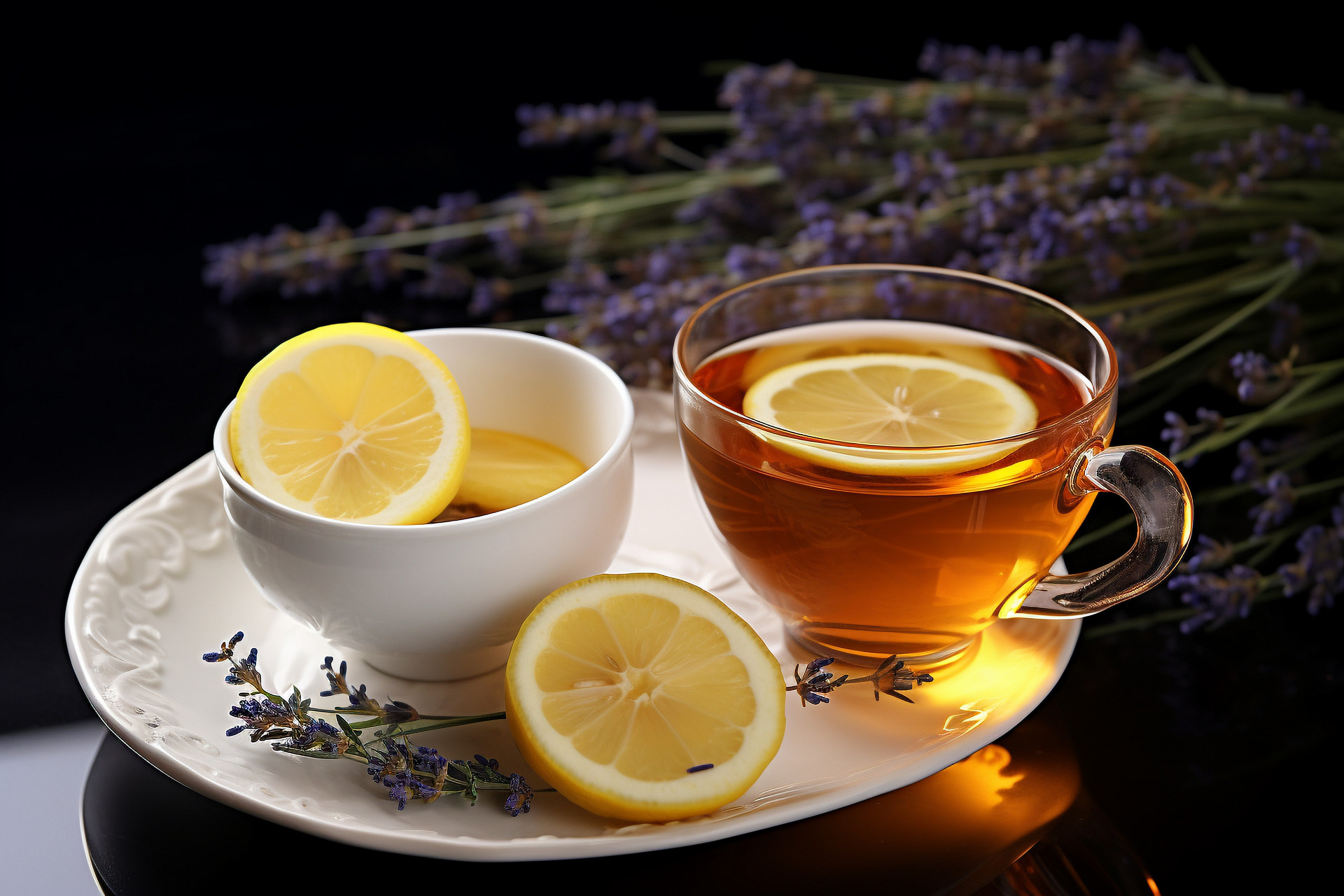
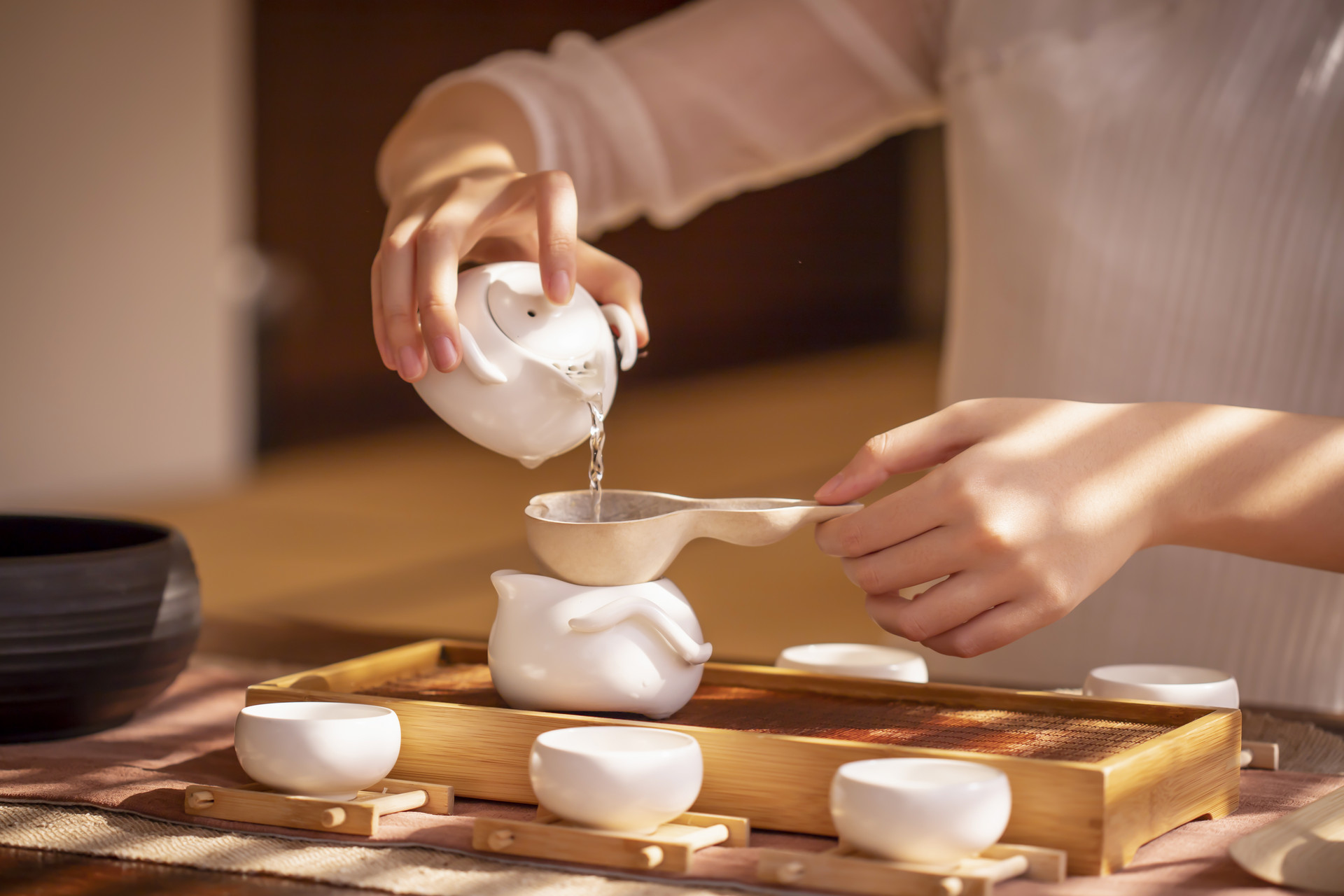
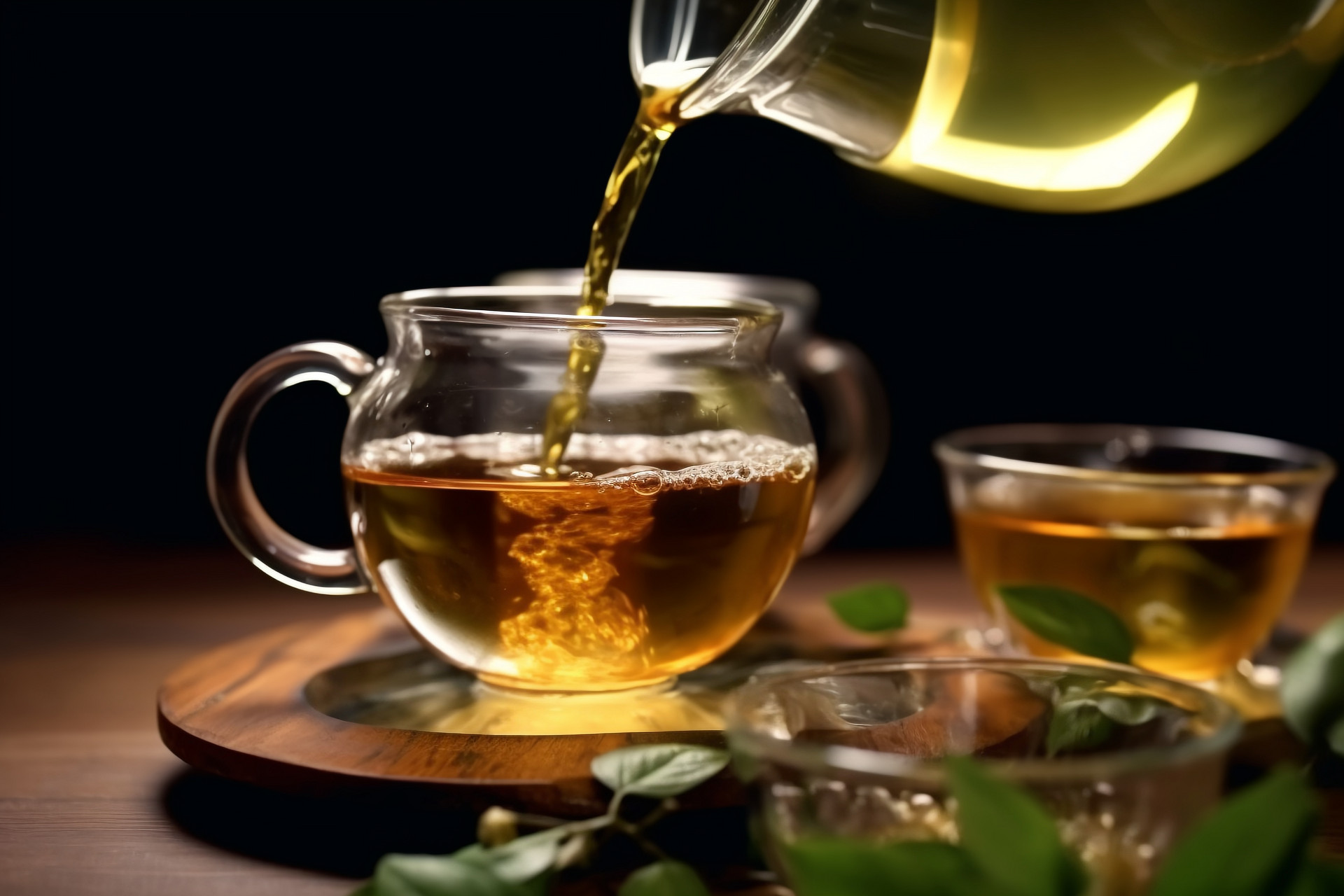

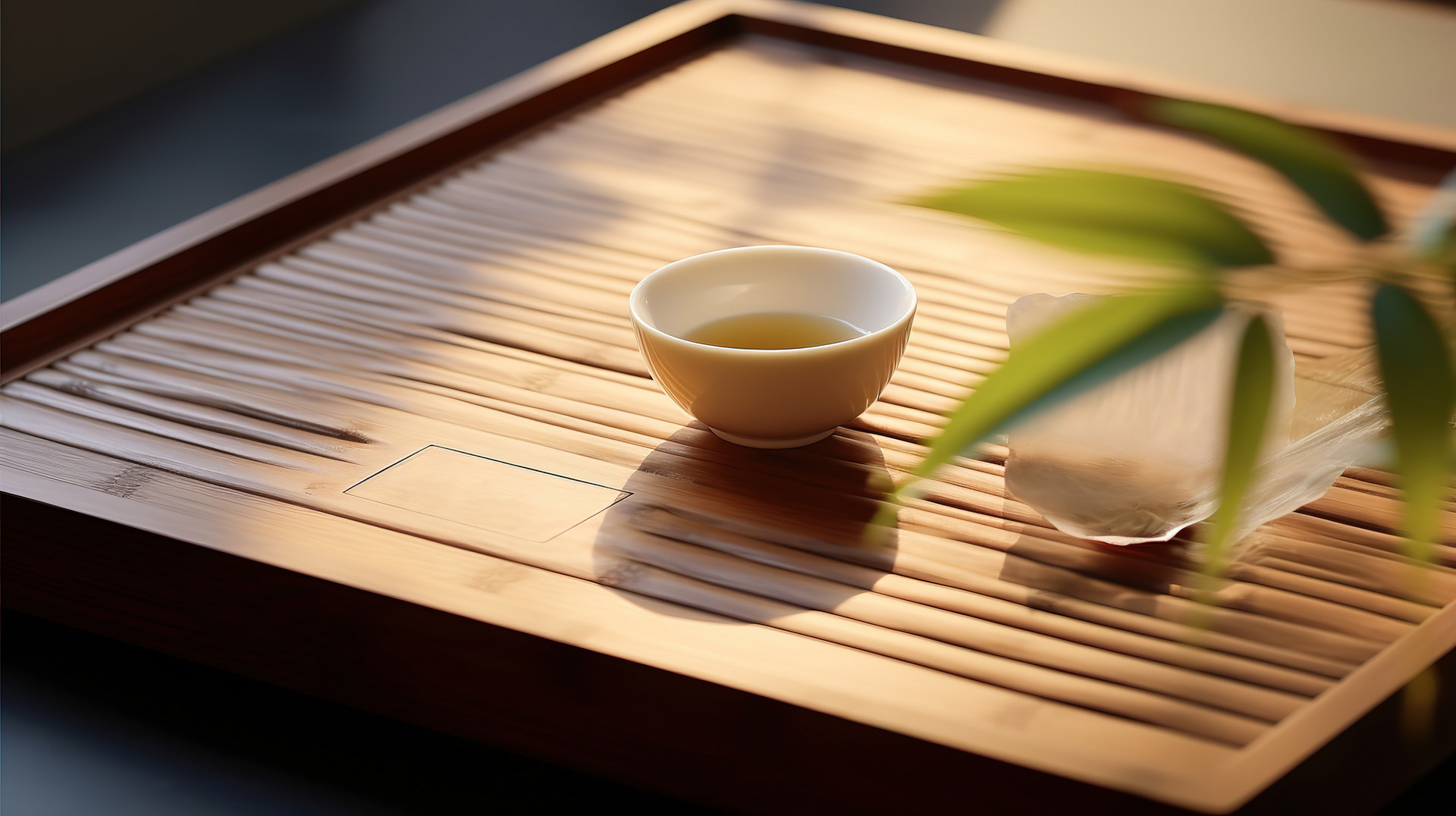
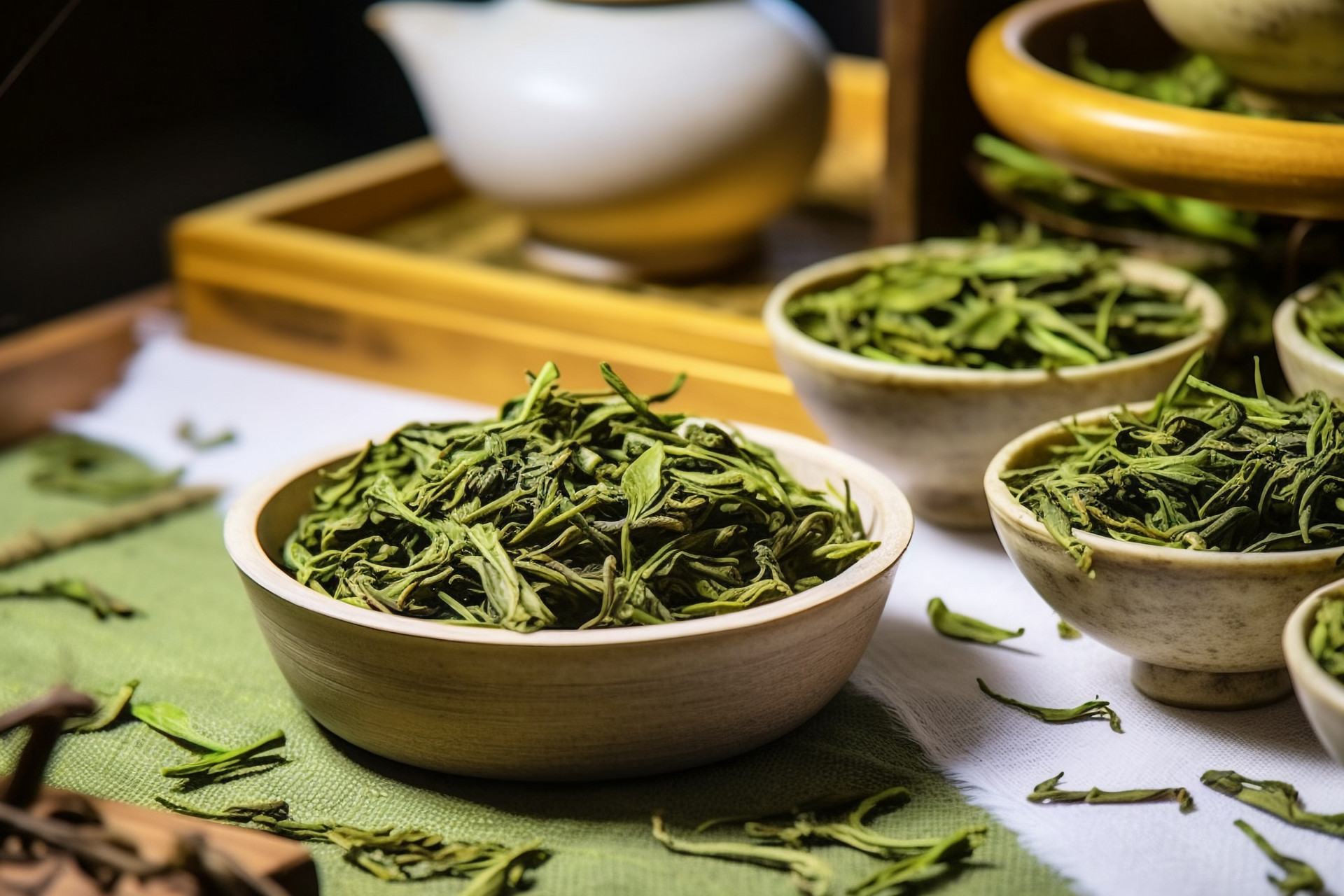
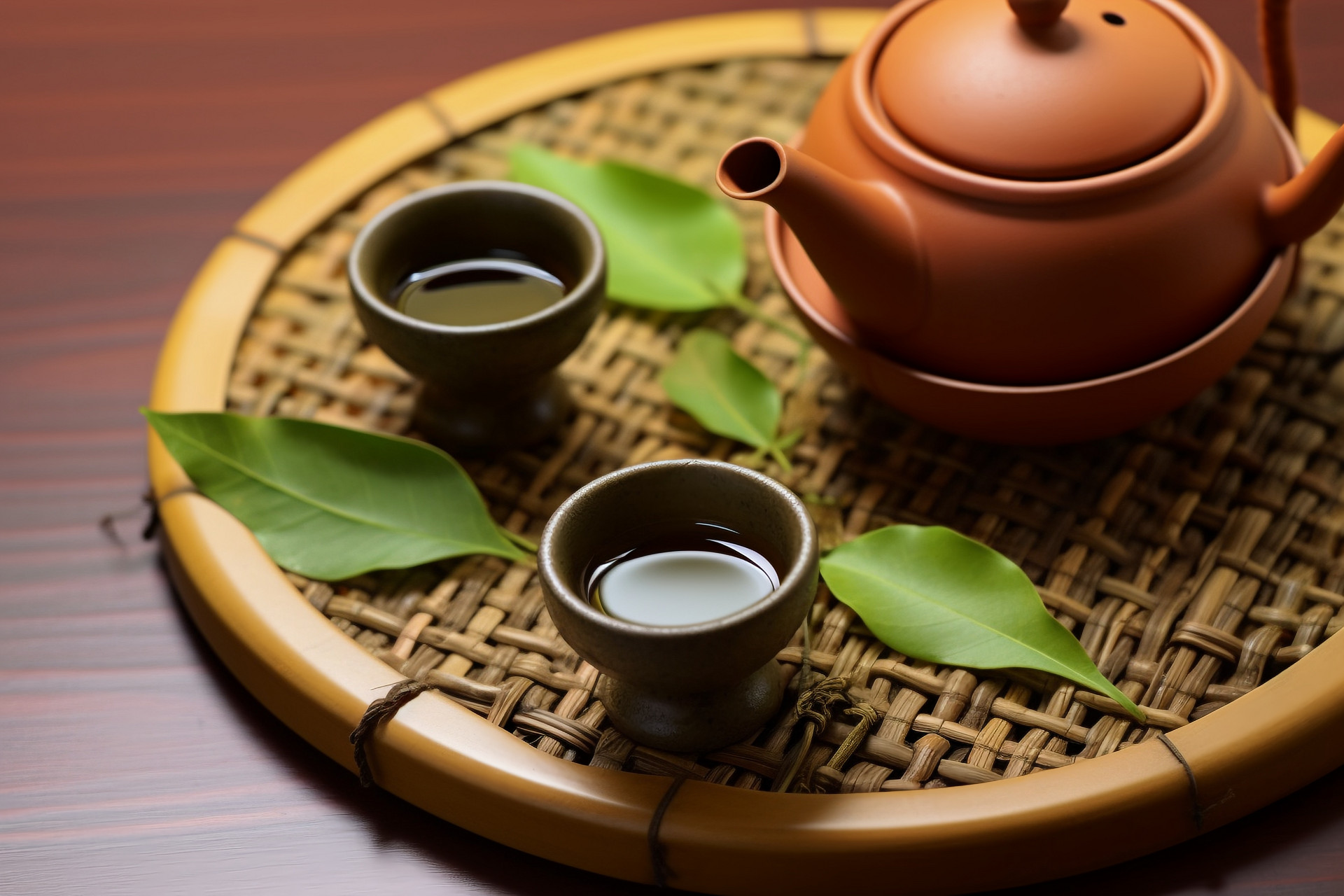
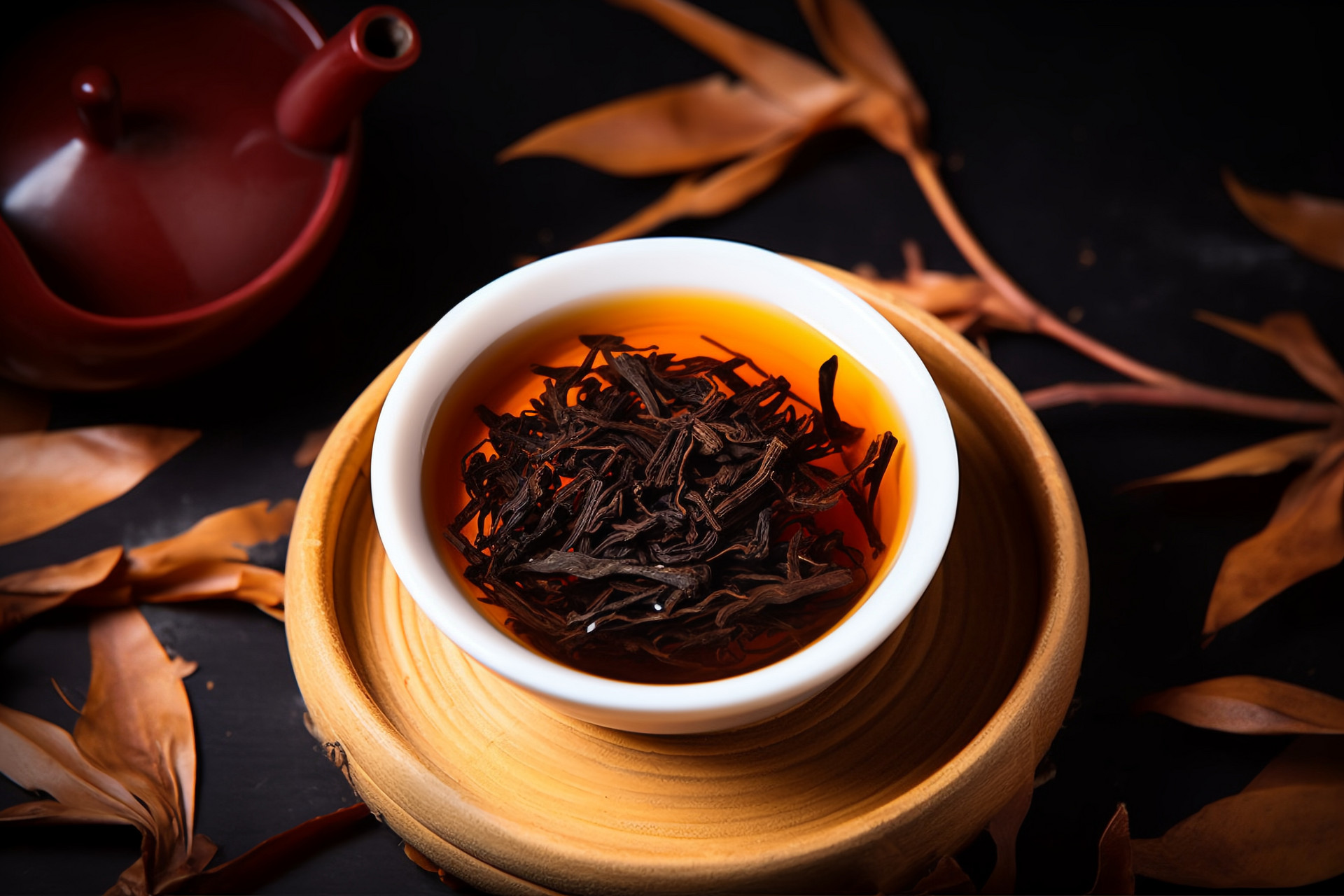
![[Herbal Wine Recipes for Health and Beauty]](https://tcmmaintenance.com/uploads/20240715/7241f6b6eafdaed88c28b26a37213964.jpg)